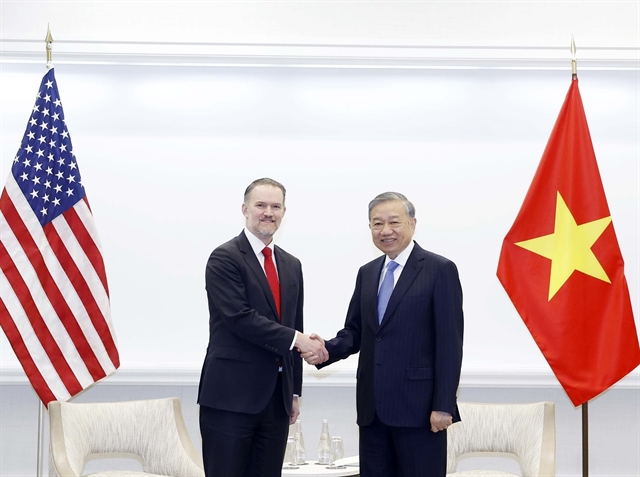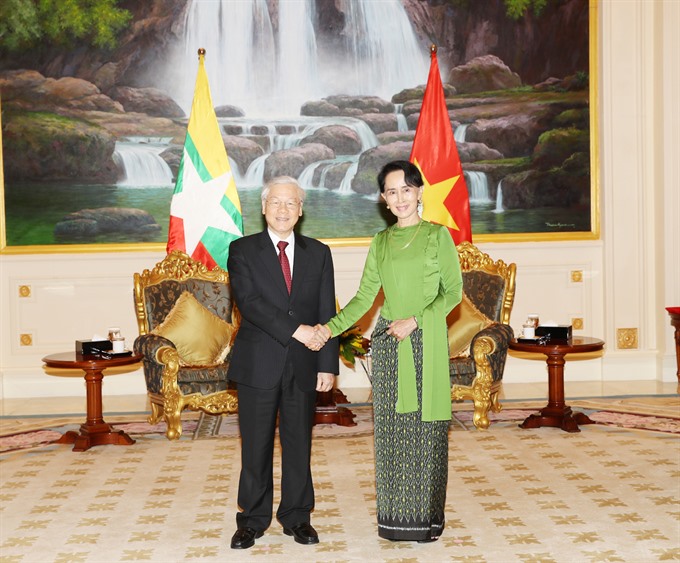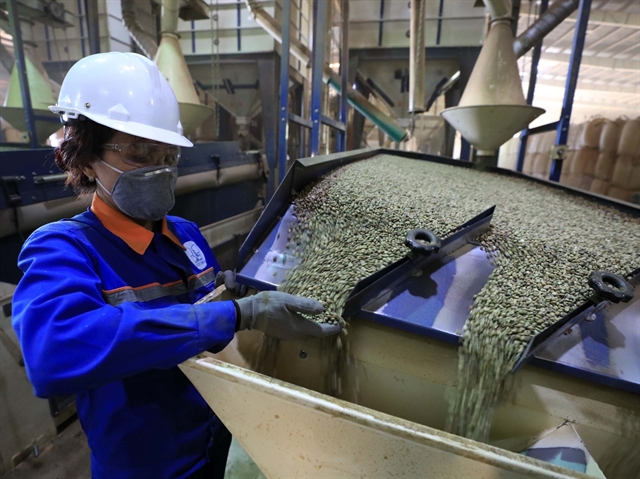 Politics & Law
Politics & Law

General Secretary of the Communist Party of Việt Nam Nguyễn Phú Trọng and Myanmar State Counsellor Aung San Suu Kyi hope to boost cooperation between the two countries in the future, they said during their meeting in Naypyidaw yesterday.
 |
| General Secretary of the Communist Party of Việt Nam Nguyễn Phú Trọng meets Myanmar State Counsellor Aung San Suu Kyi. — VNA/VNS Photo Trí Dũng |
NAYPYIDAW — Việt Nam and Myanmar plan to deepen co-operation in the future, leaders said at a meeting in Naypyidaw yesterday.
At their meeting, General Secretary of the Communist Party Nguyễn Phú Trọng and Myanmar State Counsellor Aung San Suu Kyi praised the official establishment of the Việt Nam-Myanmar comprehensive co-operative partnership framework as a new milestone and a source of momentum for bilateral collaboration across a range of issues.
Aung San Suu Kyi affirmed that the friendship between Myanmar and Việt Nam is strong. She said her country wants to learn from Việt Nam’s experience, while Party leader Trọng said Việt Nam considers Myanmar a priority in its foreign affairs policies.
They agreed to increase delegation exchanges at all levels from the Party, Government and State to the legislature, with the aim of increasing political trust, reinforcing friendship, and boosting comprehensive cooperation.
The host and guest agreed to strengthen co-ordination, exchange information and provide mutual support at regional and international forums to maintain solidarity and promote the central role of ASEAN in the regional security architecture.
They emphasised that the maintenance of peace, stability, freedom, and safety of maritime and aviation movement in the East Sea not only benefits the involved parties but also the region and world.
The two sides advocated efforts to accelerate the settlement of any disputes via peaceful means and in accordance with international law. Relevant laws include the 1982 United Nations Convention on the Law of the Sea (UNCLOS) and the Declaration on the Conduct of Parties in the East Sea (DOC). Both countries expressed hope that the region will soon establish a Code of Conduct in the East Sea (COC).
During the meeting, Trọng informed the host about the outcomes of his talks with President Htin Kyaw. He noted that the two countries agreed to elevate the bilateral relations to a comprehensive co-operative partnership and signed a number of co-operation agreements on key issues, including politics, economics-investment, defence-security, and culture-education. — VNS


.jpg)

